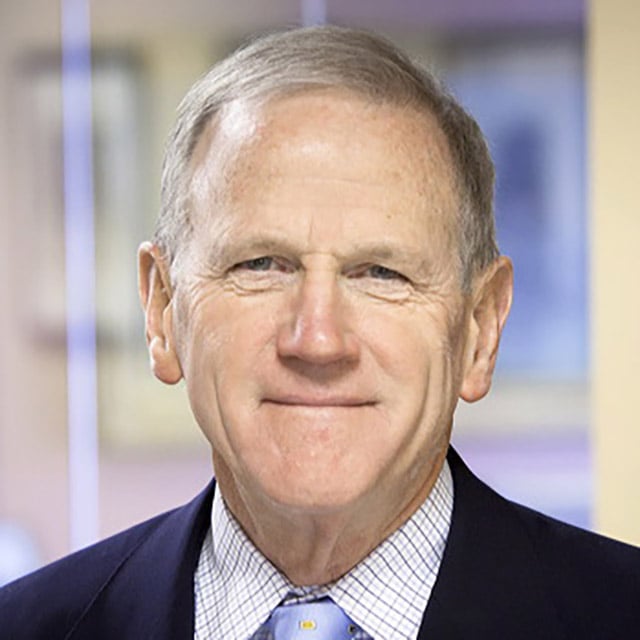Falcon
NOT FOR REPRINT
How Hollywood's Greatest Financial Villains Can Make You Money
Slideshow December 19, 2018 at 02:26 PM
Share & Print
Americans love going to the movies (or watching them at home). According to creditloan.com, in 2016 the average American spent $2,913 on entertainment. Films have heroes and villains. Good guys and bad guys. Often, someone connected to the financial services industry is the villain. Why is this important? Professionally, you don't want to be identified as the "bad guy" because bad guys hurt people. Then again, if the bad guys often win, perhaps you want to get them on your side. Who are the financial bad guys in movies? There are often also legitimate, law-abiding firms in the same industries, publicly traded on major exchanges. 1. Bankers. They've always been bad guys. In the movies, they launder money. In westerns, they foreclose on innocent ranchers and farmers. During the Great Recession, people lost their homes. To whom? The bankers, of course. ("The Grapes of Wrath," 1940) Idea: The general perception is banks almost always manage to make money. They were bailed out. Would bank stocks be a suitable investment area for your clients? 2. Corporate Executives. They are often portrayed as greedy individuals out of touch with the general public. In movies, they will flout environmental regulations or trade with evil countries, just to make a buck. ("Robocop," 1987) Idea: Many recognizable brands are also publicly traded companies. If they are that good at making money, should your client own some? 3. Hedge Funds. The good guy, who runs a homeless shelter, is going to be evicted because a hedge fund bought the building. Movies make hedge fund managers faceless people in the background who manipulate the stock market. They are always very rich. (TV series "Billions," 2016) Idea: Does your product selection include a fund of funds or other way to make a small investment in hedge funds? Is it appropriate for your client? 4. Wall Street Bankers. In this case, it's investment or merchant banks. They have trading desks. They cause wild swings in the market. They are short-term, not long-term thinkers. ("Margin Call," 2011) Idea: Some of the firms your client could name also offer a range of mutual funds, open to the general public. Is it time to get these guys playing for your client? 5. Computer-Driven Trading. It's also known as high-frequency or algorithmic trading, but that's jargon the public doesn't understand. Movies portray mom and pop investors suffering at the expense of these evil programs that get into and out of the market in fractions of a second. ("Quants: The Alchemists of Wall Street," 2010) (Documentary) Idea: Your firm may have a robo-advisor offering or a vehicle that uses computer driven strategies. If your client likes the idea, shouldn't you discuss it? 6. Insider Trading. The villain is often someone who knows something others don't. They use this information to make money at the expense of the general investing public. ("Wall Street," 1987) Idea: We don't do that. People get caught. They go to jail. Gordon Gekko did. 7. Advertising Agencies. In movies and on TV, they manipulate people, getting them to buy things they don't want or can't afford. Updating the concept, everyone is familiar with popups and banner ads on their computers, tablets and phones. (TV series "Columbo," Episode "Double Exposure," 1973) Idea: Social media companies make money from advertising. It's probably directly (stocks) or indirectly (with a mutual fund) in your portfolio already. 8. Accountants. They steal from companies run by well-meaning people. They help people hide money offshore. They keep the books for criminal empires. They usually play a minor role. Sometimes, good accountants do these things unwittingly. ("The Producers," 1967) Idea: Hiring a dishonest accountant doesn't fit anywhere. 9. Technology Companies. They invent a technology, then lose control of it. ("Jurassic Park," 1993) Idea: You could easily name half a dozen firms with technology that might change the world. Owning through a fund provides diversification. 10. Defense Contractors. When they aren't overcharging the government, they are delivering substandard products to the U.S. military. They are forming private armies. They are arms dealers, selling weapons to shady regimes. (TV Series "24," Season 7) Idea: The defense industry is often considered resilient in economic cycles because they sell to the government, not the general public. These firms are often public companies. But What About Me? Financial advisors and community bankers are often cast as good guys. ("It's a Wonderful Life," 1946). Insurance agents are often cast as honest people. ("Four Seasons," 1981) --- Related on ThinkAdvisor:
 Bryce Sanders is president of Perceptive Business Solutions Inc. He provides HNW client acquisition training for the financial services industry. His book, "Captivating the Wealthy Investor," can be found on Amazon.
Bryce Sanders is president of Perceptive Business Solutions Inc. He provides HNW client acquisition training for the financial services industry. His book, "Captivating the Wealthy Investor," can be found on Amazon.
- The Ten Commandments of Prospecting
- The 7 Deadly Sins of Fee-Based Advisors
- Legendary Ex-Fraudster Frank Abagnale Says Cybercrime Will Turn Deadly
- Jordan Belfort, the 'Wolf of Wall Street,' Offers (Ethical) Sales Tips for Advisors
 Bryce Sanders is president of Perceptive Business Solutions Inc. He provides HNW client acquisition training for the financial services industry. His book, "Captivating the Wealthy Investor," can be found on Amazon.
Bryce Sanders is president of Perceptive Business Solutions Inc. He provides HNW client acquisition training for the financial services industry. His book, "Captivating the Wealthy Investor," can be found on Amazon.NOT FOR REPRINT
© Touchpoint Markets, All Rights Reserved. Request academic re-use from www.copyright.com. All other uses, submit a request to [email protected]. For more inforrmation visit Asset & Logo Licensing.
Featured Resources
View All
Sponsored by Axos Advisor Services
Integrated Banking Solutions: How To Enhance Client Services and Grow Your Business

Sponsored by Optifino
Three Macro Trends Impacting Long-Term Care: Trends, Solutions & Client Conversations

Sponsored by Vanilla
The Missing Piece: Why Advisors Who Skip Estate Planning are Failing Their Clients







